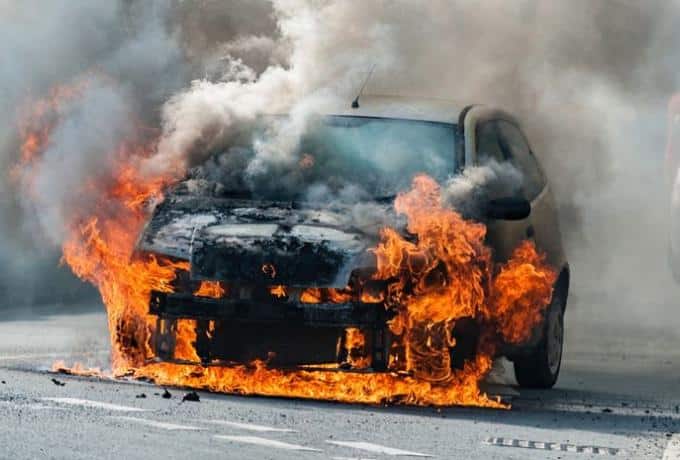High temperatures and lack of maintenance are the main reasons that increase the chances of a car catching fire while moving.
Modern cars have large amounts of plastic, which can overheat, melt, and ultimately have a chance - not a big one - of causing a fire.
Older cars on the other hand, are usually not properly maintained. Thus, a small leak of oil or flammable liquid can cause a fire if the temperature is too high.
Also, faulty electrical wiring can create a short circuit or a spark causing a fire.
Correct control for fire prevention
To avoid all of the above it is vital to observe the correct maintenance of the car. The annual inspection of the car is necessary, as the mechanic can detect the damage and correct it at the initial stage.
At the same time, it will distinguish the parts of the car that need repair, as well as the worn parts so that they can be replaced.
If there is smoke, the smell of burning material or other suspicious signs, the driver must stop his car in a safe place and check the source of the problem.
It is of great importance that during service the use of genuine or certified spare parts can reduce the risk of fire.
Many times even a low oil level is a cause of engine overheating, as there is insufficient lubrication. The same effect can be had by the reduced amount of coolants that raise the temperature of the engine, increasing the risk of fire.
When cars are in traffic jams they develop high temperatures. A hot engine can ignite flammable liquids (eg oil or coolant) if leaking to its hot components.
A malfunction in the braking system (brake sticking) causes excessive friction and enough heat on the discs or drums, which can cause a fire. Finally, the exhaust system must also work normally, helping the proper operation of the engine.
